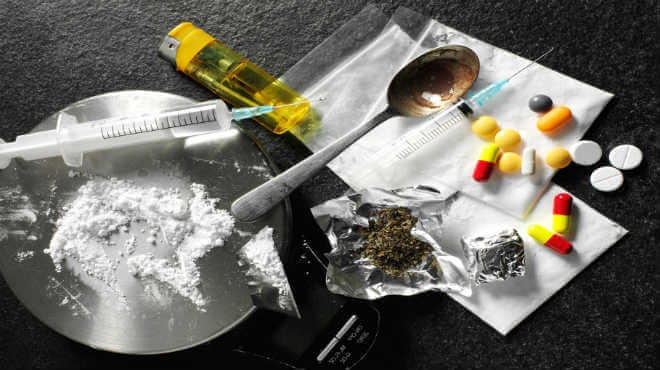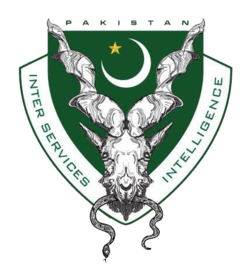Pakistani nationals now make up most foreign inmates in Saudi Arabia, many jailed on serious drug charges. From Karachi’s drug markets to meth busts across the Gulf, experts warn of growing links between trafficking, shadow economies, and extremist funding tied to Pakistan…reports Asian Lite News
In a pattern raising alarms among regional authorities, Pakistani nationals now comprise the majority of foreign prisoners in Saudi Arabia — many incarcerated on serious narcotics charges. From bustling drug markets in Karachi to methamphetamine (“shabu”) seizures across the Gulf, officials and analysts are increasingly concerned about the nexus between narcotics trafficking, shadow economies, and extremist financing networks rooted in Pakistan.
According to Pakistani government data, 10,279 Pakistani nationals were imprisoned in Saudi Arabia as of early 2025 — nearly half of all Pakistanis jailed abroad. While Riyadh does not release detailed breakdowns, independent assessments indicate a large proportion of these prisoners are serving sentences for drug trafficking and smuggling.
Saudi media has repeatedly reported high-profile drug busts involving Pakistanis. In May 2024, two Pakistani nationals were arrested in Medina for selling crystal meth and heroin. A year later, Saudi authorities intercepted 147 kilograms of methamphetamine at Jeddah Port, allegedly linked to three Pakistani nationals. Analysts note that among “hundreds of drug busts” in recent months, a majority of those apprehended have been of Pakistani origin, According to the milli chronicle.

A Rising Methamphetamine Hub
Historically overshadowed by Afghanistan’s opium dominance, Pakistan is now emerging as a significant player in the global methamphetamine trade.
In April 2025, Pakistan’s Anti-Narcotics Force seized 200 kilograms of crystal meth hidden in spice packets aboard a Karachi-bound container destined for Dubai. Earlier that year, Philippine customs authorities discovered 404 kilograms of meth smuggled from Karachi, disguised as noodles and custard.
The trend suggests that Pakistan is evolving into both a production base and a major transit hub. Seizures of precursor chemicals such as ephedrine — including 540 pounds in 2011 and 1,750 pounds in 2012 at Karachi port — hint at a robust underground meth industry.
Trafficking routes now run from Pakistan through Gulf ports like Jebel Ali in Dubai, extending into Europe and Southeast Asia. Law enforcement agencies across Oman, the UAE, and Saudi Arabia increasingly cite Pakistani nationals as central figures in regional meth smuggling.
“Pakistan’s geographic position has always lent itself to drug trafficking,” notes one regional narcotics expert. “But the rise of synthetic drugs like meth has introduced a far more complex and dangerous landscape.”

Allegations of State Collusion
Fueling international concern are long-standing allegations that elements of Pakistan’s powerful military-intelligence establishment, particularly the Inter-Services Intelligence (ISI), have deep links to the narcotics trade.
In his 2022 NATO-sponsored report Narco-Insecurity, Inc., researcher David Winston contends that the ISI launched covert operations with jihadist groups funded by drug trafficking. According to the study, this alliance extended drug routes through Pakistan into the Gulf, Europe, and the Balkans.
Winston highlights the Haqqani Network — a key ISI proxy operating along the Pakistan-Afghanistan border — as heavily reliant on narcotics revenues. “Pakistan invested in their infrastructure and facilitated the drug flows that underwrote terror operations,” he asserts.
Retired Indian Army General Jagatbir Singh has similarly labeled Pakistan a “narco-nuclear” state, alleging that the country’s deep state enriched itself through drug profits while the broader population endured widespread poverty. He argues that narcotics revenues were critical in funding Pakistan’s nuclear ambitions.
Despite the gravity of these claims, concrete proof remains elusive due to the clandestine nature of intelligence work. “The absence of a smoking gun doesn’t mean the fire isn’t there,” a European intelligence official observed, requesting anonymity due to diplomatic sensitivities.

A Shadow Economy Built on Narcotics
Beyond state complicity, economic desperation also fuels Pakistan’s entanglement with illicit drug trade. According to the UNODC’s 2024 report, an estimated 36% of Pakistan’s GDP stems from the informal economy — with narcotics playing a significant role.
Compared to traditional opiates, meth production offers higher profit margins and requires lower capital investment. Winston warns that the global rise in synthetic drugs will only deepen the reach of criminal networks, posing transnational security threats that go well beyond Pakistan’s borders.
Social trends among incarcerated Pakistanis in the Gulf add further concern.
Zahack Tanvir, a prominent counter-extremism expert with over 12 years in Saudi Arabia, reported that some Pakistani drug traffickers in the Kingdom offered religious justifications for their crimes. “Shockingly, a few insisted that Islam only forbids alcohol, not narcotics,” The Milli Chronicle report quoted as Zahack saying.
He added that some traffickers justified their actions by expressing disdain toward Arab consumers, particularly Saudis. “Some even claim it’s acceptable to sell drugs to Arabs — reflecting a toxic mix of economic despair and cultural animosity.”
Saudi Arabia’s Tightrope
For Saudi authorities, the surge in Pakistan-linked drug trafficking presents a delicate balancing act. Despite the Kingdom’s notoriously strict anti-narcotics laws — including mandatory death sentences — the meth crisis continues to grow.
Diplomatic complexities further complicate enforcement. Pakistan’s Foreign Ministry has, on occasion, lobbied for leniency in high-profile cases, including the February 2025 release of a Pakistani family previously sentenced for smuggling. Nonetheless, Riyadh maintains that its “zero tolerance” policy remains firm in the face of growing domestic concern and rising meth demand.
As drug routes shift and Gulf states struggle to contain the narcotics influx, policymakers increasingly recognize Pakistan’s internal challenges with criminal networks as a regional — not just national — threat. The shadow economy, state complicity, and synthetic drug trade now represent a combustible mix with far-reaching consequences.













